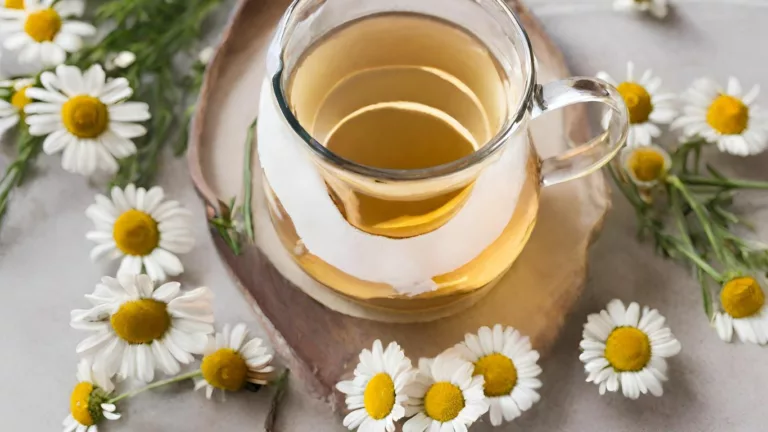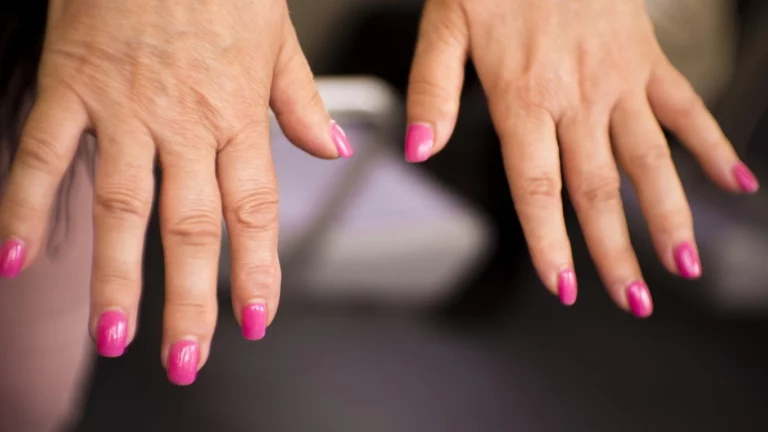Best Juices to Improve Blood Pressure Naturally & Effectively
If you or someone you know is dealing with high blood pressure, then you’re probably aware of how important it is to maintain healthy blood pressure levels. As a hypertension expert, I’ve seen firsthand how lifestyle changes—especially when it comes to diet—can make a world of difference in managing blood pressure. One of the simplest and most effective ways to help regulate blood pressure naturally is by incorporating certain juices into your daily routine. But, with so many options out there, how do you know which ones are the best juices for improving blood pressure? Let’s dive into this topic and explore how specific juices can support heart health.
Why Juices for High Blood Pressure?
When you’re trying to manage blood pressure, it’s not just about avoiding unhealthy foods; it’s also about including things that can actively help your body. Juices made from nutrient-rich fruits and vegetables are packed with vitamins, minerals, and antioxidants that can aid in reducing high blood pressure. From my experience working with patients, I’ve seen how these juices can complement other lifestyle changes like exercising and reducing sodium intake.
The key to these juices lies in the natural compounds they contain, such as potassium, magnesium, and antioxidants. These nutrients are known to help relax blood vessels and improve circulation, which can lead to lower blood pressure over time. And the best part? You can easily incorporate them into your daily diet with just a quick juice in the morning or during lunch!
The Top Juices for Lowering Blood Pressure
1. Beet Juice: The Blood Pressure Hero

Beet juice has become a superstar when it comes to blood pressure regulation. I can’t tell you how many patients I’ve recommended it to—and the results have been amazing! Beets are naturally high in nitrates, which can help widen blood vessels and improve blood flow. Studies have shown that consuming beet juice can lead to noticeable reductions in blood pressure, especially for those who suffer from hypertension.
If you’re new to beet juice, it might take a little getting used to the earthy taste, but I promise it’s worth it. I always recommend mixing it with a bit of apple or carrot juice to make it sweeter and more palatable. A small glass of beet juice each day can help support heart health, reduce the strain on your cardiovascular system, and ultimately help lower blood pressure.
2. Pomegranate Juice: A Powerhouse of Antioxidants

Another juice that’s consistently on the top of my list is pomegranate juice. It’s not just a tasty, antioxidant-rich drink, but it has some serious blood pressure-lowering effects. Pomegranate is packed with polyphenols, which are natural antioxidants that have been shown to reduce inflammation and improve cardiovascular health. These benefits make pomegranate juice a great choice for those looking to lower their blood pressure naturally.
I love recommending pomegranate juice to patients because it can easily be incorporated into any diet. Whether you drink it on its own or mix it into a smoothie, it’s a delicious and effective way to support your heart. Some studies suggest that drinking pomegranate juice for even a few weeks can result in a noticeable reduction in both systolic and diastolic blood pressure. Not to mention, it tastes amazing!
3. Celery Juice: A Savory Solution

Celery juice is another gem for blood pressure management. It’s packed with natural compounds like phthalides, which can help relax blood vessels and improve blood circulation. For those who are trying to manage their hypertension, celery juice can be a game-changer. What’s more, celery is naturally low in sodium, making it a perfect addition to a heart-healthy diet.
Personally, I find that adding a little lemon or ginger to celery juice can make it a more refreshing and flavorful option. I’ve had patients tell me how much they love starting their day with a glass of fresh celery juice because it’s so light, hydrating, and effective. If you’re looking for a juice that can help bring your blood pressure down while also supporting overall health, celery juice is definitely worth considering.
Why You Should Incorporate These Juices Into Your Routine
As I’ve mentioned, making small but impactful changes to your diet can have a significant effect on your blood pressure. Including these juices—beet, pomegranate, and celery—into your daily routine can be an easy and delicious way to give your cardiovascular health the boost it needs. Of course, it’s important to remember that these juices should complement other healthy lifestyle choices, like maintaining a balanced diet, staying active, and reducing stress.
One thing I always emphasize to my patients is that consistency is key. Drinking a juice or two a day isn’t a quick fix, but with time and regularity, you’ll likely see improvements in your blood pressure. And the best part? You get to enjoy these juices as part of a delicious, nutrient-packed routine. It’s a win-win!
Conclusion
Incorporating the best juices for improving blood pressure into your daily routine can be a simple and effective way to support heart health and manage hypertension. Be sure to try out beet juice, pomegranate juice, and celery juice, and experiment with adding other heart-healthy ingredients to your juices. Whether you’re already working on lowering your blood pressure or just looking to take proactive steps, these juices can be an excellent tool to add to your healthy living toolkit.
Other Juices to Consider for Lowering Blood Pressure
So far, we’ve talked about some of the most popular juices for improving blood pressure, but there are plenty more options that deserve a mention. From my years of experience working with hypertension patients, I’ve seen how different juices can bring their own unique benefits. Let’s dive into a few more options you can consider adding to your daily routine to help regulate blood pressure naturally.
4. Orange Juice: The Vitamin C Boost

Now, I know what you’re probably thinking—orange juice is nothing new. But here’s the thing: It’s more than just a delicious drink! Orange juice is loaded with vitamin C, which plays a key role in protecting the blood vessels and reducing inflammation. Not only does it give your immune system a boost, but it also helps improve the elasticity of your arteries, which can help prevent high blood pressure.
Personally, I recommend choosing freshly squeezed orange juice over the store-bought varieties, as the latter can sometimes be loaded with added sugars. If you’re looking for an extra edge, consider pairing your orange juice with a dash of turmeric or ginger, both of which have anti-inflammatory properties. This combo can help you fight off free radicals and keep your blood pressure levels in check.
5. Watermelon Juice: Hydration and More

Watermelon isn’t just for summer picnics—it’s also a fantastic choice when it comes to managing high blood pressure. Watermelon juice contains a compound called citrulline, which has been shown to improve blood flow and reduce blood pressure. Citrulline helps relax and expand blood vessels, making it easier for blood to flow through. This naturally lowers blood pressure without any harsh chemicals or medications.
What I love about watermelon juice is how hydrating it is. Since dehydration can actually cause blood pressure to spike, staying hydrated is crucial for maintaining healthy blood pressure. Watermelon juice is an easy, refreshing way to stay hydrated while also giving your blood pressure a helping hand. I recommend sipping on it throughout the day, especially during warmer months when hydration is even more important!
How to Make the Most of These Juices
By now, you’re probably wondering, “How do I incorporate these juices into my routine without getting overwhelmed?” Great question! In my experience, the key is consistency—and finding a routine that works for you. It doesn’t have to be complicated, and it doesn’t need to feel like a chore. Here’s what I suggest based on the strategies that have worked for my patients:
- Start slow: If you’re new to drinking juices regularly, don’t feel pressured to start with five or six glasses a day. Start with one small glass of juice in the morning or at lunch and see how your body responds. Over time, you can increase the amount as it becomes part of your daily routine.
- Combine juices for variety: Instead of drinking the same juice every day, consider rotating between different options to keep things exciting. You can also mix juices for an extra nutritional punch. For example, combine beet juice with a little carrot juice for a sweet, antioxidant-packed drink!
- Balance with a healthy diet: While juices can definitely help manage blood pressure, they should be part of a larger, heart-healthy diet. Focus on reducing sodium, increasing fiber, and eating a variety of fruits, vegetables, whole grains, and lean proteins.
- Don’t forget to stay hydrated: While juices can be a great addition to your hydration plan, make sure you’re also drinking plenty of water throughout the day. Hydration is essential for keeping your blood pressure in check!
Is It Possible to Lower Blood Pressure Just with Juices?
While juices can certainly play a helpful role in lowering blood pressure, it’s important to keep in mind that they’re not a magic fix. They should be seen as part of a larger plan that includes healthy eating, regular exercise, and stress management. Over the years, I’ve worked with many patients who saw real improvements in their blood pressure after making comprehensive lifestyle changes that went beyond just drinking juices. For example, getting active (even if it’s just a 30-minute walk each day) and cutting back on processed foods are crucial steps in managing hypertension.
That being said, adding these juices to your daily routine can certainly give you an edge. I’ve seen patients who made small adjustments, like drinking beet juice daily or incorporating pomegranate juice into their meals, achieve significant reductions in their blood pressure. But remember, it’s all about a holistic approach. Juices work best when they’re part of a healthy lifestyle that includes exercise, stress management, and proper medical care.
Conclusion
So, there you have it—some of the best juices for improving blood pressure and tips for incorporating them into your daily life. From beet juice to watermelon juice, each of these drinks brings something unique to the table, making it easier to support your heart health. Whether you’re just starting to focus on your blood pressure or you’re looking for ways to maintain healthy levels, these juices are a tasty and effective addition to your routine.
As always, it’s important to consult with your healthcare provider before making significant changes to your diet or treatment plan. But if you’re looking for a simple, natural way to help manage your blood pressure, incorporating these juices is a great place to start. Cheers to your health—and here’s to enjoying some delicious, blood pressure-friendly drinks along the way!
Case Studies & Real-Life Examples
Now, I know you’re probably wondering, “Does this actually work in real life?” After all, it’s one thing to read about something, but seeing results is what truly matters. Over the years, I’ve had the privilege of working with many patients who’ve made changes to their diet—including adding heart-healthy juices—only to see incredible improvements in their blood pressure. Let me share a couple of case studies that really stand out in my memory, so you can see just how impactful these juices can be in real-life situations.
Case Study 1: The Power of Beet Juice
One patient who comes to mind is Sarah, a 45-year-old woman who had struggled with high blood pressure for years. Despite following a typical low-sodium diet and staying active, her blood pressure remained stubbornly high. After discussing her diet in our session, we discovered that while she was doing many things right, she hadn’t incorporated any juices that could actively help reduce blood pressure. I suggested she start drinking beet juice daily, as it’s packed with nitrates that help relax blood vessels.
Sarah was a bit skeptical at first, but she decided to give it a try. Within just a few weeks of regularly drinking beet juice, she came back to me with incredible news: her blood pressure had dropped significantly! Her systolic pressure went from 150 to 130, and her diastolic pressure dropped from 95 to 85. Sarah was thrilled with the results, and so was I. The best part was that it was a simple, natural change she could stick with—and she felt more energized, too!
Case Study 2: Pomegranate Juice and Stress Management
Another case that stands out is that of David, a 60-year-old man who had a long history of hypertension, largely due to stress and a sedentary lifestyle. David’s blood pressure had reached dangerously high levels, and he was worried about the risk of complications like stroke or heart attack. When we discussed his daily routine, I recommended he add pomegranate juice to his diet, as its antioxidant properties can help reduce inflammation and improve overall cardiovascular health.
David took my advice to heart (pun intended!) and started incorporating pomegranate juice into his breakfast routine. After a month of consistent juice consumption, combined with reducing his stress levels and exercising more, David’s blood pressure dropped by over 10 points. His doctor was impressed, and David felt more at ease knowing he was doing something positive for his health.
Key Takeaways: What You Need to Remember
- Consistency is key: Incorporating juices like beet juice, pomegranate juice, and celery juice into your routine can have lasting effects, but it’s important to be consistent. Don’t expect instant results; give it time, and your body will thank you.
- Balance with a healthy lifestyle: Juices alone won’t solve all your blood pressure issues. Combine them with a healthy diet, regular exercise, and stress management practices for the best results.
- Natural, but powerful: Juices from fruits and vegetables can provide powerful, natural support for managing high blood pressure. These juices contain essential nutrients like potassium, magnesium, and antioxidants that can help reduce inflammation and improve circulation.
- It’s not a one-size-fits-all: Everyone’s body is different, so it’s important to experiment with different juices and see what works best for you. Some people might prefer beet juice, while others might see better results with watermelon juice.
FAQs
1. Can I drink these juices if I’m already on blood pressure medication?
Yes, you can! However, it’s always a good idea to consult with your doctor before making any dietary changes, especially if you’re on medication. Juices can complement your medication, but they shouldn’t replace prescribed treatments. Your doctor can help you determine the best approach.
2. How much juice should I drink per day to lower blood pressure?
There’s no one-size-fits-all answer, but I typically recommend starting with a small glass (around 4-6 ounces) of juice each day. You can gradually increase the amount as your body adjusts. Remember, moderation is key, and it’s important not to overdo it with sugar-rich juices.
3. Are store-bought juices as effective as freshly made ones?
Freshly squeezed juices are always the best option because they retain more nutrients and are free of added sugars and preservatives. However, if you’re short on time, you can find store-bought options that are 100% juice with no added sugars. Just make sure to read the labels carefully!
4. Can I combine different juices for better results?
Absolutely! In fact, combining juices can provide a wider range of nutrients that benefit heart health. For example, beet and carrot juice is a great combo, or you can try mixing pomegranate juice with some lemon juice for an extra vitamin C boost.
Bonus: Additional Resources or DIY Tips
If you’re looking to take your heart health to the next level, there are some DIY tips and resources that might be helpful:
- Juice Cleanse: Try a 3-day juice cleanse to kickstart your healthy habits. Include heart-healthy juices like beet, celery, and watermelon to give your blood pressure a boost.
- DIY Smoothies: Don’t just stick to juices—mixing fruits and vegetables into smoothies can also be a great way to get heart-healthy nutrients. Add leafy greens like spinach or kale, and use your favorite low-sugar fruits like berries and apples.
- Mindfulness and Relaxation: Pair your healthy juices with stress-reducing techniques like meditation or yoga. Managing stress is just as important as diet when it comes to lowering blood pressure.
Appendix: Table, References, Disclaimer, and Call to Action
References: For more detailed information on managing blood pressure through diet and lifestyle, check out these trusted sources:
Disclaimer: The information provided in this article is for educational purposes only and should not replace professional medical advice. Always consult with a healthcare provider before making changes to your diet or treatment plan.
Call to Action: Ready to take control of your blood pressure? Start incorporating these juices into your daily routine and see how they can help improve your heart health. If you have any questions or need more personalized advice, don’t hesitate to reach out. Your heart deserves the best care!

Dr. Gwenna Aazee is a board-certified Internal Medicine Physician with a special focus on hypertension management, chronic disease prevention, and patient education. With years of experience in both clinical practice and medical writing, she’s passionate about turning evidence-based medicine into accessible, actionable advice. Through her work at Healthusias.com, Dr. Aazee empowers readers to take charge of their health with confidence and clarity. Off the clock, she enjoys deep dives into nutrition research, long walks with her rescue pup, and simplifying medical jargon one article at a time.







